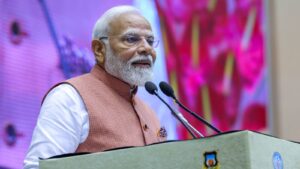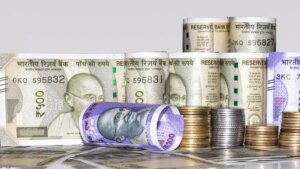The Political Tug-of-War: BJP and Congress in the Spotlight
In the ever-evolving landscape of Indian politics, the recent exchanges between the Bharatiya Janata Party (BJP) and Congress reflect tensions that resonate deeply with the public. BJP President JP Nadda’s sharp criticism of Rahul Gandhi and the Congress party has intensified discourse on the state of democracy and political integrity in India. This blog post aims to delve into the underlying themes of these exchanges, the historical context, and the implications for the future of Indian governance.
The Context: A Politically Charged Atmosphere
On a recent Wednesday, during the inauguration of Congress’s new headquarters, Rahul Gandhi articulated a bold stance suggesting that the opposition was not only fighting the BJP but also the Indian state itself. This declaration is more than a political rhetoric; it hints at a profound sentiment among opposition factions that they perceive a diminishing space for dissent in the political arena. Gandhi’s assertion that the BJP and Rashtriya Swayamsevak Sangh (RSS) have infiltrated every institutional framework speaks to a pervasive concern regarding the perceived erosion of democratic norms.
The BJP’s Response: Accusations and Allegations
Nadda swiftly retorted, accusing Gandhi of maintaining links with "Urban Naxals and the Deep State," alleging that these entities aim to undermine India’s reputation. His critique emphasizes a recurring BJP narrative that frames opposition leaders as inherently anti-national. He stated, "Everything he has done or said has been in the direction of breaking India and dividing our society." This statement encapsulates the BJP’s strategy of delegitimizing dissent by associating it with treasonous activity, a tactic that has resonated with a significant segment of the electorate.
Additionally, Nadda highlighted the Congress party’s historical role in fostering political forces that he argues have sought to weaken India. The BJP has posited its own narrative of nationalism, which starkly contrasts with the Congress’s more inclusive vision of secularism—an ideological divide that has dominated Indian politics for decades.
The Historical Underpinnings
To fully appreciate the implications of these contemporary exchanges, we must understand their historical backdrop. The Congress Party, which has historically been a central pillar of Indian politics since independence, has faced varying degrees of criticism regarding its governance and policy decisions. The BJP, which emerged in the latter half of the 20th century and gained prominence in the late 1990s, has largely campaigned on a platform of Hindu nationalism and economic reform, often critiquing the perceived misgovernance attributed to Congress.
This historical rivalry has evolved into accusations regarding the integrity of Indian institutions, with both parties accusing one another of undermining democratic processes. The emergence of new political ideologies and the engagement of disaffected youth have further complicated the landscape.
The Role of the Election Commission
In a recent critique, Gandhi raised concerns about the functioning of the Election Commission, pointing out the suspicious emergence of nearly one crore new voters between Lok Sabha and Vidhan Sabha elections in Maharashtra. His assertion of discomfort with the way the Commission operates accentuates the dialogue around electoral transparency and fairness—issues that remain central to India’s democratic ethos.
The BJP’s paradoxical position in criticizing these claims while simultaneously being accused of manipulating electoral outcomes showcases the contentious nature of Indian electoral politics. Questions about the legitimacy of votes and the transparency of voter registration are pivotal in shaping the faith of the electorate.
Broader Implications for Indian Democracy
As the political stalemate continues, the implications for Indian democracy are profound. The growing polarization within the political framework could lead to an environment where dissent is heavily scrutinized, further complicating the landscape for political discourse. The narratives crafted by both the BJP and Congress will likely shape the public’s perception of national identity, governance, and security for years to come.
Moreover, with upcoming elections on the horizon, both parties will need to address not only their ideological differences but also the increasing demands for accountability from an electorate that is more informed and engaged than ever before.
Conclusion: The Road Ahead
The exchanges between BJP and Congress represent more than mere political posturing; they uncover deeper ideological battles surrounding national integrity, institutional autonomy, and the future of democracy in India. As public sentiment shifts and the political environment continues to evolve, the necessity for constructive dialogue and democratic engagement becomes increasingly paramount. For the people of India, navigating these turbulent waters will be crucial in determining the course of their political and civic future.
As citizens, it’s imperative to remain informed and engaged in these discussions, advocating for a political climate that values transparency, integrity, and inclusivity in the democratic process.









